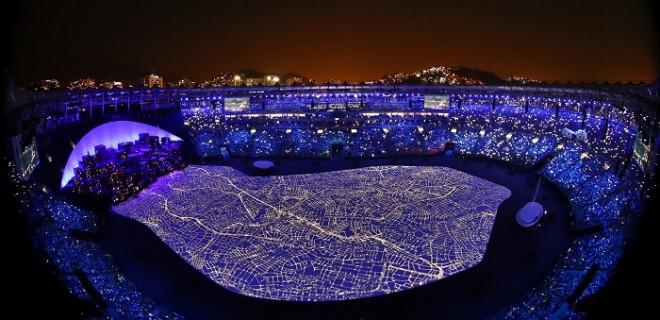
There was song and dance, obviously, glamour, highlighted by Gisele Bundchen's catwalk, lights and fireworks, but this Olympics Opening Ceremony was not about the pizzazz; it was one that sometimes pulled at the heartstrings, made you think, forced you to ponder on the current situation of the world – no, no, not in a desperately depressing kind of way, but in an uplifting one, that had your energy levels spiking at the iconic Maracana.
That is the beauty of the Olympics – it inspires, be that to represent your country and perform in front of billions, or to make an impact, like most of these athletes and volunteers that make the Games tick do.
Termed as an "analogue" Opening Ceremony, owing to the budget cuts –the budget is thought to be about 10% of the 2012 London Olympics and 5% of the Beijing Games – this was a festival, with the theme of garden, diversity and joy, that will stay in the minds for a long time coming, and that too for all the right reasons.
Starting with a novel countdown, and then a beautiful rendition of the national anthem by Paulinho Da Viola, the Opening Ceremony spanned the birth of life in Brazil all the way to the modern country that it has become, before bringing the conflict the world is going through at the moment, into the open. With Pele unable to light the Olympic flame due to his ill health, that honour was given to former marathon runner Vanderlei Cordeiro de Lima, after Gustavo Kuerten and Hortencia brought the flame to the stadium.
Beginning with the tree of life – no, not the kind in Uncharted 2 – the ceremony quickly moved on to the first inhabitants of Brazil – all in a wonderfully orchestrated dance, of course – before the Europeans, in their big ships, came in to stamp their culture on the country. That was followed by the Africans and the Asians, as the creative director Fernando Meirelles' promise of showing the unity in diversity that exists in Brazil was brought out brilliantly.
In between, after and right at the end, there was plenty of song and dance, with some of the most popular music acts in Brazil adding their own style to the occasion, including 12-year-old rapper MC Soffia. The most enchanting of the performances, though, was from legends Caetano Veloso and Gilberto Gil and pop icon Anitta.
There was the famous model Gisele Bundchen too, walking across the hallowed turf of the Maracana, to the music of the "Girl From Ipanema" – the second most recorded song in history – performed live by Daniel Jobim, the grandson of the original composer Tom Jobim.
Then came the time that every athlete cherishes the most, the walk through the stadium, with the flag waving and the crowd cheering. Greece, as is the tradition, were the first country to walk out into the Maracana, while India's contingent was led by a dapper Abhinav Bindra. There were plenty of other big-name flag-bearers too, including the tennis superstars Rafael Nadal and Andy Murray, who led Spain and Great Britain respectively, and the most successful Olympian in history – Michael Phelps – who led out the powerhouses USA.
There was a huge roar for the unique refugee team, when they walked out, but that was nothing compared to the noise that came out of the Maracana for the team that the majority of the crowd waited with patience to see – the host nation Brazil, 637-strong contingent, dancing and singing along to the "Brazil, na na na na" song that played in the background.
And then, finally, the most enduring symbol, the five rings that signify the Olympic Games, in green this time, to signify the theme of nature and life.
















